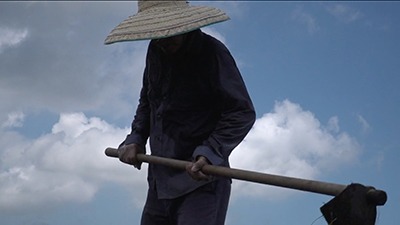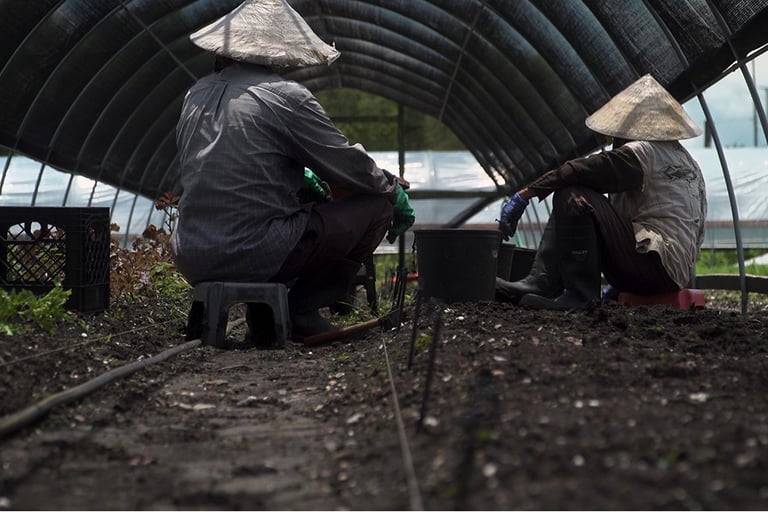Sống ở đây (To Live Here, 2021): Vietnamese Fisher and Farmer Stories, Peaceful Dreams of America
What does 'home' mean after war? 'Sống ở đây' explores that question through the lives of Vietnamese fishermen and farmers, revealing the peaceful strength in finding belonging
Melanie Dang Ho's short film, Sống ở đây (To live here), illustrates the Vietnamese fisherman and elderly farmers' peaceful life in the United States (New Orleans). The film explicitly reveals these people's past stories as refugees due to the Vietnam War by focusing on their personal feelings about crossing the country border to migrate to America and working hard with their daily labor to the present day to reach the desire for stability, despite the cultural differences. Sống ở đây (To live here) artistically highlights Melanie Dang Ho's interest in diaspora and trauma by successfully accentuating the relationship between the past and present, specifically the correlation between the Vietnamese people as a labor and the land of America. Furthermore, the light color scheme and editing allow Melanie Dang Ho to generate a tranquil atmosphere throughout the film, representing the Vietnamese fisherman and farmers' calmness after surviving their hard times during the Vietnam War. As a question that seeks an answer or a home intimacy that holds the Vietnamese people to their past, this film allows Melanie Dang Ho as a director to be recognized by the International Documentary Association.
Beyond the surface of peaceful daily routines, "Sống ở đây" delves into the intricate layers of resilience and adaptation. The film doesn't just show us the present; it peels back the years, revealing the scars of displacement and the quiet fortitude that allowed these individuals to rebuild their lives in a foreign land. The fishing nets and the cultivated fields become more than just tools of labor; they become symbols of a hard-won stability, a tangible manifestation of their determination to create a home in a place that initially felt alien.
The personal narratives shared by the fishermen and farmers aren't presented as tales of victimhood, but as testaments to the human spirit's capacity to endure. The film captures the subtle nuances of their experiences, the lingering echoes of the past that still resonate in their present lives. It is in the way they speak of the sea, the way they tend to their crops, the way they hold onto fragments of their Vietnamese heritage while navigating the complexities of their American existence.
Melanie Dang Ho's aesthetic choices, specifically the light color scheme and intentionally slow pacing, contribute to this sense of introspection . The film avoids sensationalism, resolving instead for a more thoughtful approach that allows the audience to truly connect with the subjects' inner lives. Its serenity can be odds with the turbulent past they have endured, reflects a peacefully acquired calm , deriving from finding a measure of belonging in a world that once felt totally unfamiliar with.
The film's exploration of the relationship between labor and land is particularly compelling. It is not just about physical work; it is about establishing a connection to the earth, claiming a piece of the American landscape as their own. The act of cultivating the land or harvesting the sea becomes a form of integration, a way of grounding themselves in their new reality. It is a silent dialogue between the Vietnamese people and the American soil, a testament to their ability to adapt and thrive.
"Sống ở đây" is more than just a documentary; it is a reflection on the meaning of home, the enduring power of memory, and the resilience of the human spirit. This is film that lingers in the mind, prompting us to consider the complexities of displacement and the quiet heroism of those who have found a way to build a life amidst the echoes of the past. Melanie Dang Ho's achievement in capturing this delicate balance of past and present and her ability to evoke such a powerful emotional response from her audience is a testament to her talent and the film's profound impact.



